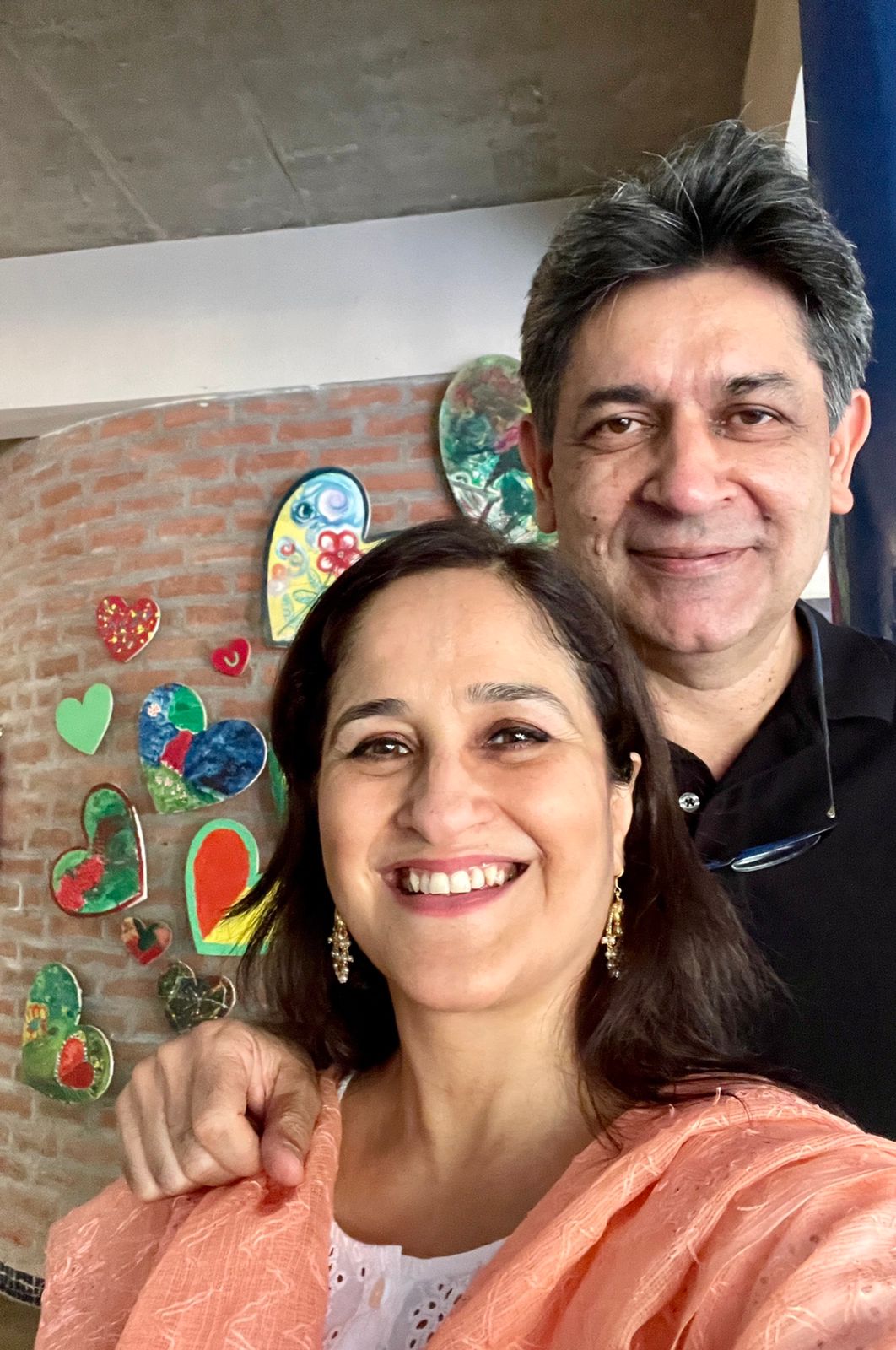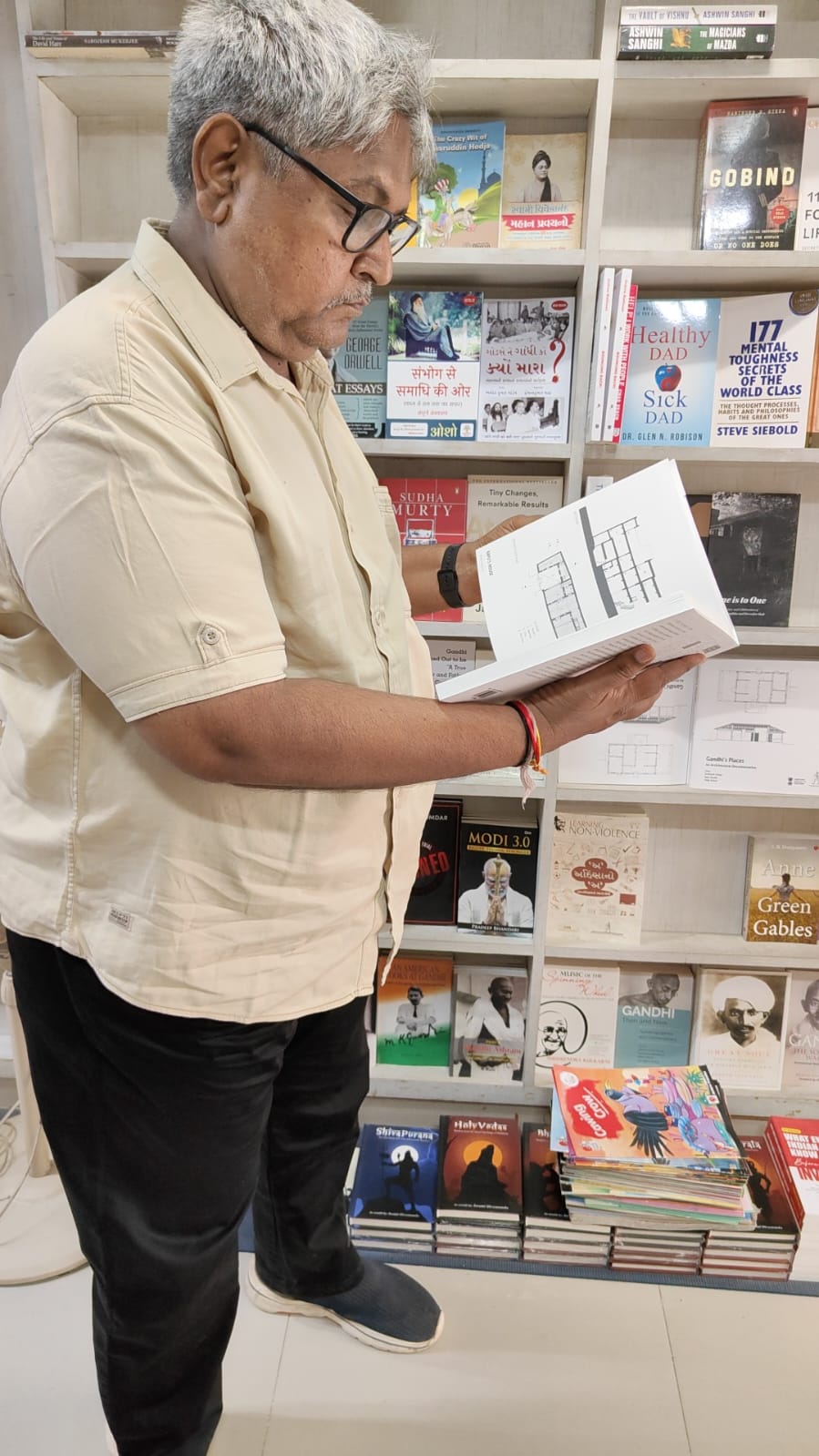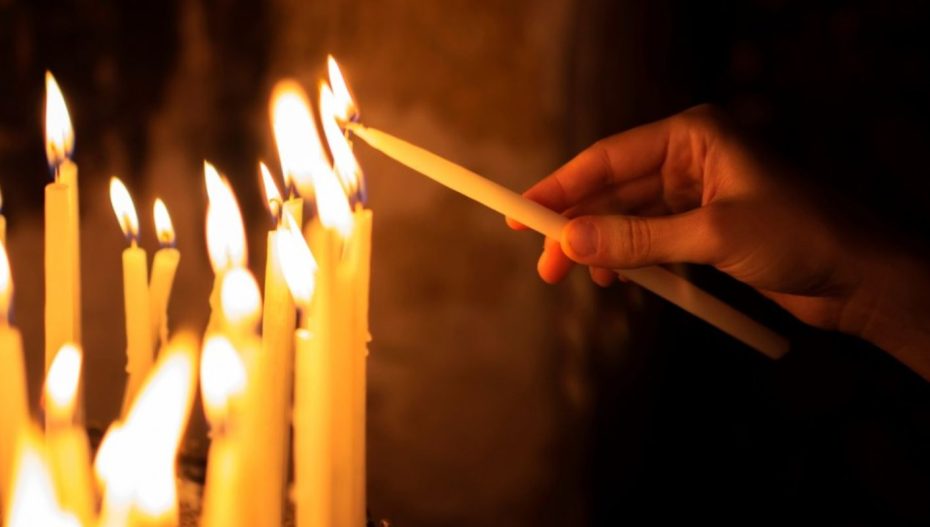
Krishna Sarma is a busy Delhi-based lawyer who specialises in intellectual property rights. Her early morning ritual is a 45-minute walk alone so that she can clear her head. “That is the only time in the day when I have time to listen to my favourite music. I listen to podcasts to catch up with the news. All this sets me up for the day. I also do a five-minute puja and chant a simple mantra. That gives me peace,” says Krishna.

Well-known paediatrician based in Ahmedabad, Dr Hiren Shah, has a passion for collecting locks and travel. He also practises a few interesting rituals. “I always carry a small idol and coin with the picture of a deity in my pocket. I touch them when I feel I need confidence before a speech or presentation. Also, in our family we always leave from a particular door facing the east in the morning to feel the sun’s rays. Another ritual I practise is asking for forgiveness for any mistakes I may have committed as soon as I wake up,” says Dr Hiren.
So, it’s not just sportspeople and artists who have rituals. We have heard of how whenever M S Dhoni walks onto a field, he makes sure that he plants his right leg first and then he looks behind to his left and towards the sky. Or how, before a show, Beyoncé listens to the same playlist, performs stretches, and meditates for one hour.
Many of us have rituals too, however small or mundane. Rituals are repetitive behaviours and are usually non-functional, that is they do not have a purpose except that they mean something to the doer. However, at times, personal habits can become like rituals.
Irrational aspect
A research paper titled ‘Don’t stop believing: Rituals improve performance by decreasing anxiety’, published in the journal ‘Organizational Behavior and Human Decision Processes’, says that while some people may dismiss rituals as irrational, they have their uses.
According to the paper, from public speaking to first dates, people frequently experience performance anxiety. People often use rituals to deal with this problem and increase their confidence before an important event.
Of course, there are sceptics too. ACP Jitendra Yadav does not believe that rituals can bring success. “If you are a sportsperson, I believe that what you need is hard work, practice and self-confidence, not a ritual. Your heart and mind should be at peace and aligned, to improve focus. A cricketer may wear the right pad before the left and think it is lucky for him. Some sportspersons repeat their winning clothes. But I don’t believe in such rituals,” he says.

Faith is important

Whether it’s a means of relieving stress or a good luck charm, rituals are common. Ahmedabad-based entrepreneur and social activist Ruzan Khambatta recites Zoroastrian ‘root’ prayers softly whenever she is free and her mind wanders in different directions. “Reciting these prayers helps keep me grounded. I repeat the two-minute prayers a few times whenever I feel like. When I travel by air or road I recite these prayers. I find it a protective practice which makes me feel confident,” says Ruzan.

Yoga expert Girjesh Sharma, who practises in Ahmedabad, is of the view that if one has faith in a ritual, it can give comfort and confidence to a person. “There is nothing scientific about rituals. But they work if you have faith. For instance, there is a belief that you should have a spoonful of curd before you leave the home to start something new. That is supposed to bring success. Many people practise this ritual and find reassurance in it. So, it has a positive psychological impact,” says Girjesh.
Benefits of rituals
Rituals may be religious, cultural or personal. As such, experts believe that rituals are beneficial for the following reasons:
- Rituals help us focus better on an important upcoming event and boost confidence.
- They help structure our lives and give us a sense of control.
- They alleviate anxiety and actually lower the heart rate.
- Rituals help during periods of grieving.
- Practising rituals reportedly increases the pain threshold.
- Rituals give us emotional stability.
- They may be soothing and relaxing in moments of stress.
- Some people believe that certain rituals bring good luck.
- They offer the reassurance of something predictable in uncertain moments.
- Some rituals are tied to our values and that gives us a feeling of well-being.
When habits become rituals
As mentioned earlier, habits can take the form of rituals. For instance, a morning walk to start the day on a positive note or a bedtime routine for better sleep are like rituals.

Educationist Kiran Bir Sethi and billiards legend Geet Sethi, residents of Ahmedabad, have a specific morning routine that is almost like a ritual. “We start the morning by doing breathing exercises. Then we solve the ‘New York Times’ Wordle and crossword puzzles while having coffee together. That’s become a good way to begin our day. After that, we get busy with our respective schedules. During his playing days, I recollect that Geet would be partial to wearing a blue suit and blue bow tie for tournaments,” says Kiran.

Businessman Rajiv Doshi owns Natraj Book Centre in Ahmedabad. “I am not religiously inclined so I do not follow any religious rituals. I do not believe in Vastu Shastra either for good luck and prosperity. I have two daily habits that do me good. I enjoy my 40-50-minute morning walk. It improves the quality of my day. At night, I listen to soothing religious music to get better sleep,” says Rajiv.
Finally, we can incorporate rituals into our daily routine towards beneficial outcomes. Dr Jamie Gruman, founding member of the Canadian Positive Psychology Association, has written in ‘Psychology Today’: “We can light a candle at the end of the workday to enhance how much we savour our leisure time. We can regularly visit locations that are special to us to de-stress and feel more in control. We can meditate before important tasks to reduce our anxiety and enhance our performance. The choice is ours. Research suggests that introducing rituals into our lives can be a valuable part of effective living.”
Also Read: How To Weather Life’s Storms With Resilience













